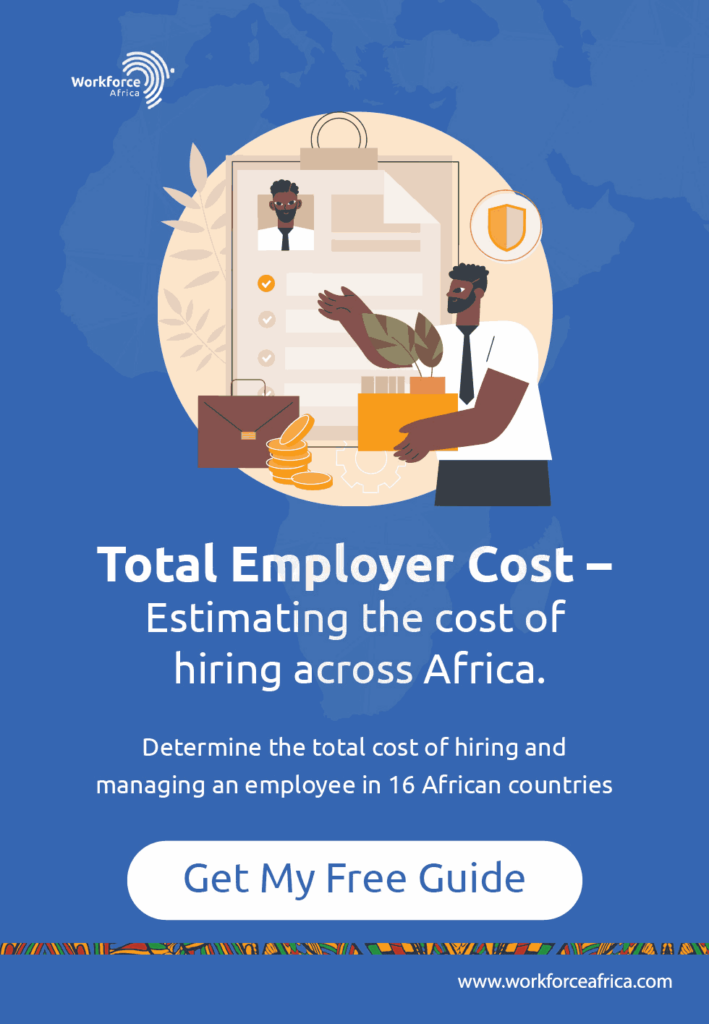
- hello@workforceafrica.com
- +234 816 305 6589
- +234 903 194 6744

Offshoring customer service outsourcing to Africa presents great benefits for businesses seeking to optimize their operations and enhance customer experiences.
This article delves into the pros and cons of offshoring customer service to Africa, providing insights to help businesses make informed decisions about their outsourcing strategies.
The strategy of offshoring customer service outsourcing has emerged as an important initiative for enhancing operational efficiency, reducing costs, and accessing a diverse talent pool.
Africa, with its growing economy and pool of skilled professionals, has increasingly become an attractive destination for offshoring customer service outsourcing initiatives.
This article explores the details of offshoring customer service outsourcing to Africa, as well as its pros and cons.
It aims to help businesses understand how they can make the most of African talent for their customer service needs.
Offshoring customer service entails the delegation of customer support functions to a third-party service provider located in a different geographical location, typically in a foreign country.
Offshore customer service is established through outsourcing arrangements, where companies contract with external service providers in offshore locations to handle customer inquiries, technical support, and other functions remotely.
One of the most compelling reasons for offshoring customer service to Africa is the significant cost savings it offers.
Labor costs in many African countries are lower compared to developed nations, making it economically advantageous for businesses to establish customer service operations there.
Lower operational costs translate into higher profit margins for global companies, allowing them to allocate resources more efficiently across their business operations.
Africa is renowned for its linguistic diversity, with thousands of languages spoken across the continent. This linguistic richness presents a considerable advantage for customer service outsourcing.
Many Africans are fluent in multiple languages, including English, French, Arabic, Portuguese, and various local dialects.
This multilingual workforce enables businesses to cater to a broader customer base, enhancing communication and customer satisfaction.
Companies can efficiently serve customers from different regions and linguistic backgrounds without the need for extensive language training programmes for staff.
Contrary to common misconceptions, Africa has been experiencing significant technological advancements in recent years.
Many African countries are embracing digital transformation and investing in infrastructure to support the growing IT sector.
This technological progress includes the expansion of internet connectivity, the adoption of cloud computing, and the proliferation of mobile technology.
By offshoring customer service to Africa, businesses can leverage these technological advancements to streamline operations, improve efficiency, and deliver superior customer experiences.
Additionally, the evolving tech ecosystem in Africa presents opportunities for innovation and collaboration in customer service solutions.
Offshoring customer service to Africa offers businesses increased flexibility in scaling their operations according to fluctuating demand.
African outsourcing partners can often adapt quickly to changing requirements, offering scalable solutions tailored to meet the needs of businesses of all sizes.
Whether it's ramping up customer service outsourcing during peak seasons or adjusting staffing levels to align with market dynamics, outsourcing to Africa provides the flexibility needed to optimise resource allocation and maintain service quality.
Africa boasts a growing pool of skilled professionals across various industries, including customer service, IT, and business process outsourcing.
Many African countries have invested in education and training programs to develop a highly skilled workforce capable of competing on a global scale.
By offshoring customer service operations to Africa, businesses gain access to this talent pool, tapping into a diverse range of expertise and experience.
Skilled professionals in Africa are well-equipped to handle complex customer inquiries, resolve issues efficiently, and uphold service standards that meet or exceed international benchmarks.
Recommended Post: Top 5 Reasons You Should Offshore to Africa
When offshoring customer support operations to Africa, data security becomes a critical concern.
Customer service often involves handling sensitive information such as personal details, payment data, or account information.
Ensuring the security and privacy of this data is paramount to maintaining customer trust and complying with regulations.
To mitigate these risks, companies need to thoroughly vet their offshore partners, ensuring they adhere to industry standards for data protection and have robust security protocols in place.
This may involve conducting audits, implementing contractual agreements, or investing in additional security measures to safeguard customer data throughout the outsourcing process.
Quality control is another crucial aspect of offshoring your customer service to Africa.
Maintaining consistent service standards across different locations can be challenging due to factors like cultural differences, language proficiency, or training disparities.
Offshore customer service agents may not possess the same level of expertise, language fluency, or familiarity with the company's products or services as their onshore counterparts.
This can lead to inconsistencies in responses, misunderstandings, or errors in resolving customer inquiries, which can negatively impact the overall customer experience.
Africa typically has significant time zone differences to regions like North America, USA, where many customer bases may reside.
This can lead to issues in providing real-time support, as agents may not be available during peak customer service hours.
Customers might experience delays in responses or wait longer for resolutions, which can negatively impact satisfaction and retention
Managing a customer service team across continents comes with its own set of challenges, including communication barriers, coordination difficulties, and the need for effective leadership.
Supervisors may struggle to provide timely feedback, address concerns, or ensure consistent quality of service due to the physical distance.
This can hinder the overall efficiency and effectiveness of the customer service operation.
Africa is a diverse continent with many cultures, languages, and customs.
These differences can lead to misunderstandings or misinterpretations between agents and customers, impacting the quality of interactions.
For instance, cultural nuances in communication styles, etiquette, and problem-solving approaches may not align with customer expectations in other regions.
This can result in frustration, confusion, or dissatisfaction among customers, ultimately affecting the company's reputation and brand image.
As Africa's leading management consulting firm, Workforce Africa stands ready to empower organisations by harnessing the vast opportunities of offshoring customer service to Africa, driving growth, innovation, and excellence in customer service delivery.
To mitigate the cons of outsourcing customer support service to Africa, companies can take these strategic steps through their partners
Suggested Posted: The Pros & Cons of Outsourcing to Nigeria
Offshoring customer service outsourcing to Africa presents organisations with a myriad of opportunities to enhance operational efficiency, and access skilled professionals.
By leveraging Africa's diverse talent pool, cultural affinity, and strategic partnership opportunities, organisations can optimise their customer service operations and elevate the overall customer experience.
While challenges such as cultural differences, data security, and quality control exist, proactive mitigation strategies and partnerships with reputable consulting firms like Workforce Africa can help organisations like yours navigate these complexities effectively.
Contact us today to assist you with offshoring customer services to Africa.